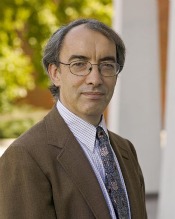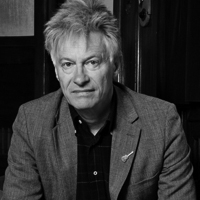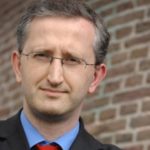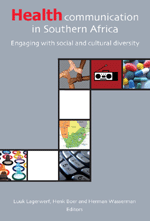
Larry Bartels
The United States is a plutocratic disaster. Extreme levels of inequality and a political system in which elected officials cater primarily, if not exclusively, to the needs and interests of the rich have produced a social order beset with mounting problems and critical challenges that elections alone cannot realistically be expected to address. In this exclusive interview for Truthout, renowned political scientist Larry Bartels, author of the already classic work Unequal Democracy, provides a sweeping look at the state of our dysfunctional society.
C.J Polychroniou: In your book Unequal Democracy, you presented mountains of data revealing the seriousness of the problem of inequality in the United States. In your view, what have been the underlying factors for the emergence of a New Gilded Era, and why has the American political system failed to rise to the challenge of addressing the deep problem of inequality?
Larry Bartels: Most affluent democracies have experienced substantial increases in economic inequality over the past 30 or 40 years. In significant part, those increases are attributable to technological change, globalization and increased mobility of capital. … But different countries have responded to those changes in different ways. Most have mitigated their effects through increased redistribution, making post-tax-and-transfer incomes much less unequal. In the United States, there has been comparatively little redistribution. There have also been political shifts that have exacerbated pre-tax-and-transfer inequality, including deregulation of the financial industry, rules restricting the clout of labor unions and the erosion of the minimum wage.
Broadly, the difference is attributable to the economic ideology of America’s political leaders. More specifically, it is attributable to the economic ideology of Republican leaders. My historical analysis of partisan differences in income growth demonstrates that virtually all of the net increase in income inequality since the end of World War II has occurred under Republican presidents; income growth under Democratic presidents has tended to be faster and much more egalitarian.
What is the actual impact or effect of economic inequality on democracy?
We like to think that we can wall off our democratic political system from our capitalist economic system, leaving everyone free to get rich (or poor) but remain politically equal. In practice, however, that turns out to be impossible. Hence, “unequal democracy.”
My analysis of the voting behavior of US senators found that they are moderately responsive to the views of affluent constituents but completely ignore the views of low-income constituents. A study by Martin Gilens of policy outcomes likewise found that the probability that any given policy change will actually be adopted is pretty strongly related to the preferences of affluent people but virtually unaffected by the preferences of middle-class people, much less poor people.
Proposed explanations for these remarkable disparities in responsiveness often focus on distinctive features of the US — our permissive system of campaign finance, low rate of unionization, ethos of individualism and so on. But recent work along similar lines in other affluent democracies suggests that they, too, are marked by severe disparities in political influence rooted in economic inequality. Regardless of their specific political institutions, contexts and cultures, democratic systems seem to be chronically vulnerable to the conversion of economic power into political power.
In your latest book Democracy for Realists: Why Elections Do Not Produce Responsive Government (co-authored with Christopher Achen), the key argument being made is that voting behavior is not rational. Is this something you think applies to all democratic polities, or is it confined to the peculiarities of the American political culture and the flawed nature of American democracy?
Some of the pitfalls Achen and I described involve the “rationality” of voters, loosely speaking. They have lots of other, more immediate demands on their time and attention, so most don’t invest much in mastering the complexities of politics and government. Is that “irrational”? I don’t think so.
In any case, all of us are subject to the fundamental mental limitations richly documented by psychologists under the rubric of “cognitive biases.” For example, we attach more weight to recent experience than to previous experience, we insist on assessing reward or blame for events that are essentially random, and we tend to find arguments and evidence consistent with our prejudices more persuasive than arguments and evidence that contradict our prejudices.
All of us are similarly limited when it comes to what might be called moral imagination. We know that we should be concerned about the well-being of people who are physically or socially distant, unnamed and “statistical” rather than personally identifiable, but that is very difficult, so we tend to be parochial, short-sighted and more attuned to our own comfort and power than to any impersonal vision of the collective good.
I don’t see any reason to suppose that people in other countries or cultures are less susceptible to these basic human limitations than Americans are. Nor am I aware of any compelling evidence that voters in other democratic systems perform notably better or worse than Americans do, on the whole. Certainly there are significant differences in political institutions and behavior across countries stemming from distinctive histories and economic and social contexts. For example, people in other countries are invariably puzzled by the decentralized system of election administration in the US, which leaves state and local officials remarkably free to manage registration and voting as they see fit. That system contributes to our unusually low (and class-biased) turnout; but I wouldn’t say that it fundamentally alters the nature of American democracy.
The main point of our book is not to castigate voters but to criticize an unrealistic “folk theory” of democracy that expects impossible things from them. The idea that millions of people could somehow, literally, rule themselves is simply incoherent. A great political scientist, E. E. Schattschneider, wrote long ago that, “The immobility and inertia of large masses are to politics what the law of gravity is to physics. … An electorate of sixty million Aristotles would be equally restricted.” Another, Henry Jones Ford, wrote even longer ago that, “Politics has been, is, and always will be carried on by politicians, just as art is carried on by artists, engineering by engineers, business by businessmen. All that … political reform can do is to affect the character of the politicians by altering the conditions that govern political activity, thus determining its extent and quality.”
The selection of presidential candidates is a good example. … We have too many candidates, too little information about their backgrounds, character and commitments, and too little coordination and cueing of the sort that parties themselves provide in general elections. The result is a system ripe for fringe candidates, neophytes and demagogues.
From the analyses one encounters in the two aforementioned books the conclusion easily drawn is that the US is not a democracy. Is it an oligarchy, a plutocracy or something else?
People are used to thinking about the distinction between democracies and non-democracies as categorical. I think that’s an over-simplification. Our political system has important democratic features — most notably, fairly robust civil liberties and elections that allow ordinary citizens to replace their rulers from time to time. Those features do not make it an ideal democracy in the sense suggested by the “folk theory” criticized in Democracy for Realists, but they are far from insignificant.
The eminent political theorist Robert Dahl coined the term “polyarchy” to refer to political systems roughly like ours. For better or worse, the term did not catch on. Thus, we are stuck with the term “democracy” to describe a wide variety of actual political systems as well as a variety of political ideals. (As Achen and I noted in the first chapter of Democracy for Realists, people almost everywhere nowadays manage to think of their own political systems as democratic. Asked “how democratically is this country being governed today,” people in Rwanda, Malaysia and Kazakhstan provided higher average ratings than Americans, while people in China perceived as much democracy as Americans did.)
Thus, perhaps the best we can do is to try to specify more carefully what we are talking about when we talk about democracy. For example, some scholars have used the term “participatory democracy” to refer to systems in which citizens are supposed to be routinely involved in governing, in contrast to “representative democracy” in which the primary role of citizens is to elect their representatives. On the other hand, they have referred to various diminished forms of democracy, including “illiberal democracy,” in which rulers are elected but civil liberties are not protected; “limited democracy,” in which rulers are elected but suffrage is significantly curtailed; and “tutelary democracy,” in which democratic rule is subject to military veto.
My phrase “unequal democracy” is intended to highlight another important departure from the usual understanding of democracy — the fact that political influence in America, and, I suspect, in all large-scale democratic systems, is strongly correlated with wealth. But that is a matter of degree. At what point does an “unequal democracy” tip over into a plutocracy masquerading as a democracy? I don’t know any good way to answer that question.
In your view, what would make citizens cast votes more rationally, or, alternatively, what changes need to be undertaken to make the American political system responsive to those issues, problems and threats undermining a democratic political culture?
I don’t have a sweeping agenda of political reforms to offer. I think most reformers vastly overstate their ability to predict the impact of their proposals and vastly understate the difficulty of enacting them in the face of the very political problems they are intended to mitigate.
One problem with the “folk theory” of democracy is that it leads people to think that they ought to be able to get what they want from the political system simply by voting. When that doesn’t happen they blame corrupt politicians and demand “more democracy.” Often — as in the case of [some] presidential primaries, referenda and term limits — the cure is worse than the disease. But even when that’s not the case, the obsessive focus on electoral procedures tends to distract attention from more consequential issues.
The enormous effort devoted to “reforming” campaign finance over the past half-century is a case in point. Concerns about the total amount of money being spent on political campaigns is way overblown; Democrats and Republicans in a typical election cycle spend about as much on advertising as McDonald’s and Burger King. In any case, efforts to limit the role of big contributors have mostly been ineffectual. A reform that might really accomplish that goal — providing public funding of campaigns at a level so lavish that additional private spending would be of little value — is a political non-starter, highly unpopular among incumbent politicians and citizens alike. And if the problem is the role of money in politics, the fixation on campaign finance mostly misses the point, anyway — political scientists estimate that corporations spend several times as much money on lobbying as they do on campaign contributions.
As a matter of principle, I think efforts to suppress turnout under the guise of safeguarding the electoral system against phantom “voter fraud” are pernicious. However, I don’t think that increasing turnout by liberalizing registration rules or enfranchising ex-felons or allowing everyone to vote by mail would drastically alter the policy outcomes produced by our democratic system. As Achen and I put it in the subtitle of our book, “Elections Do Not Produce Responsive Government.”
In the end, politics is about power. Changing election laws can shift the distribution of power, but mostly in modest and somewhat unpredictable ways. (The 1965 Voting Rights Act enfranchised millions of African Americans — and millions more southern whites.) Given the bluntness of the vote as a political tool, a much more straightforward path to equalizing political power would be to equalize economic power. But that is very hard to do, because the economically powerful are also politically powerful. More often, I suspect, the distribution of economic power itself shifts significantly for reasons outside the political system — as with the destruction of physical capital in major wars or the increased mobility of financial capital in the contemporary global economy.
But it is worth bearing in mind that ideas can be powerful, too. The successes of the civil rights movement hinged in large part on the ability of African Americans to harness the power of American ideals, persuading the politically powerful of the justice of their cause. In much the same spirit, I suggested in the concluding chapter of Unequal Democracy that “many affluent people support egalitarian policies that seem inconsistent with their own narrow material interests” and that (Democratic) “policy-makers may be much more generous toward the poor than the political clout of the poor themselves would seem to warrant,” since “the specific policy views of citizens, whether rich or poor, have less impact in the policy-making process than the ideological convictions of elected officials” themselves.
 Ten years ago, the implosion of Lehman Brothers ignited a financial crisis whose impact and effects were felt virtually across the globe as banks and financial institutions everywhere that were exposed to subprime lending, formed part of a long chain of complicated and interconnected derivatives, and partook freely in Wall Street shenanigans.
Ten years ago, the implosion of Lehman Brothers ignited a financial crisis whose impact and effects were felt virtually across the globe as banks and financial institutions everywhere that were exposed to subprime lending, formed part of a long chain of complicated and interconnected derivatives, and partook freely in Wall Street shenanigans.


